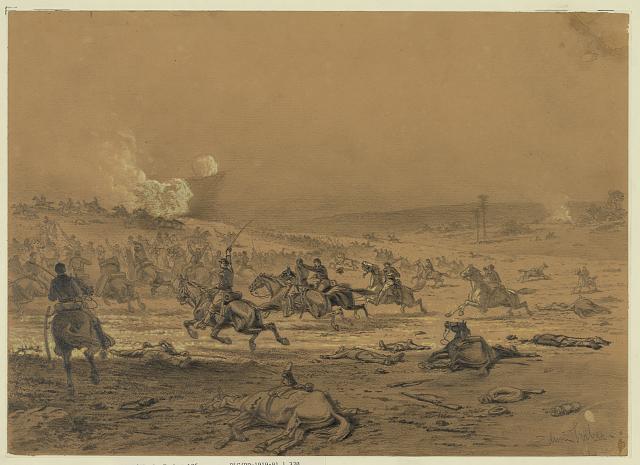I don't know if this will interest more than me but here goes.
The main purpose of this thread is to discuss to which degree there was criticism of the "Cult of the Offensive" and to which degree such opinions were expressed or supressed within the military establishments prior to the outbreak of war in 1914?
*****
I will add an example of what I am thinking about and what made me intered in starting this thread.
A possibly little known but very interesting book I read some time ago is called "Cavalry in the Russo-Japanese War", written a bit after the Russo-Japanese War, by the Austrian officer Gustav Wrangel. When I read this book I was first struck by his divided stand on both calling for increased training for dismounted action, even calling for cavalry forces to spend time at infantry schools to get the proper take on dismounted action, but at the same time empathizing that the sword was the primary weapon and the glory of the cavalry charge.
At first I thought that he was, well, a product of a system that was with one foot in the Napoleonic Age and one foot in reality. But then I started to think about it and that perhaps Gustav had both his feet in reality but the, to my understanding, conservative and hierarchial nature of the Austro-Hungarian army, along with Von Hötzendorf's very chock oriented approch to tactics, could have meant that Wrangel felt that unless he ensured he also expressed the right conservative values of the traditional cavalry officer his calls for reform and change to cavalry would fall on def ears? And possibly harm or even end his career.
I also recall that in the British army Erskine Childers was very critical of the use of chock tactics and favored the rifle as the cavalryman's main weapon, although I haven't as of this date read anything written by him myself.
The main purpose of this thread is to discuss to which degree there was criticism of the "Cult of the Offensive" and to which degree such opinions were expressed or supressed within the military establishments prior to the outbreak of war in 1914?
*****
I will add an example of what I am thinking about and what made me intered in starting this thread.
A possibly little known but very interesting book I read some time ago is called "Cavalry in the Russo-Japanese War", written a bit after the Russo-Japanese War, by the Austrian officer Gustav Wrangel. When I read this book I was first struck by his divided stand on both calling for increased training for dismounted action, even calling for cavalry forces to spend time at infantry schools to get the proper take on dismounted action, but at the same time empathizing that the sword was the primary weapon and the glory of the cavalry charge.
At first I thought that he was, well, a product of a system that was with one foot in the Napoleonic Age and one foot in reality. But then I started to think about it and that perhaps Gustav had both his feet in reality but the, to my understanding, conservative and hierarchial nature of the Austro-Hungarian army, along with Von Hötzendorf's very chock oriented approch to tactics, could have meant that Wrangel felt that unless he ensured he also expressed the right conservative values of the traditional cavalry officer his calls for reform and change to cavalry would fall on def ears? And possibly harm or even end his career.
I also recall that in the British army Erskine Childers was very critical of the use of chock tactics and favored the rifle as the cavalryman's main weapon, although I haven't as of this date read anything written by him myself.



